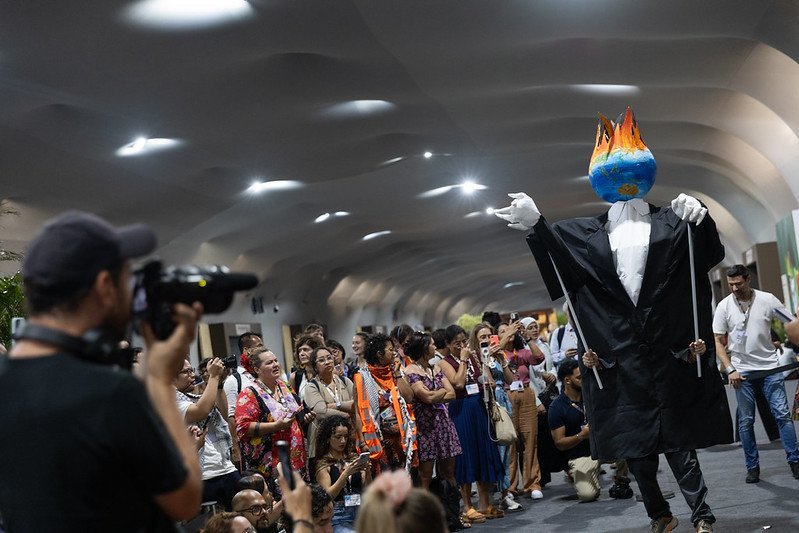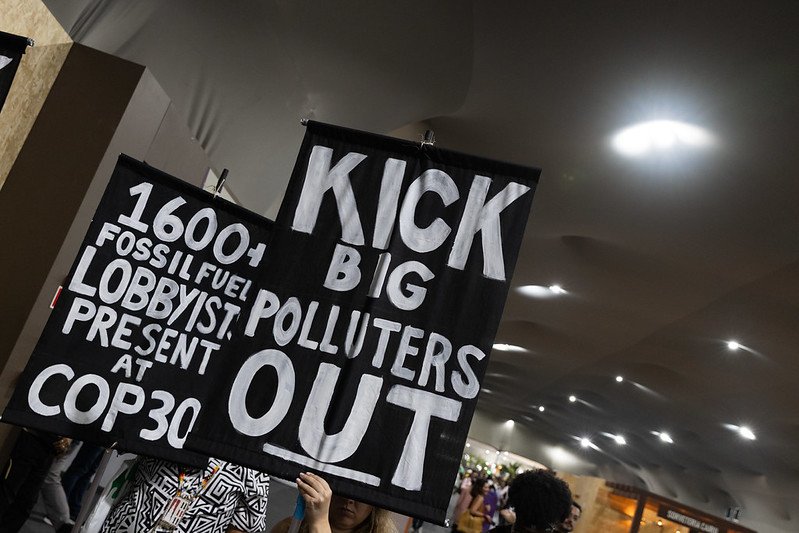
As negotiations entered a critical phase on Day 5 of COP30 in Belém, a significant concern began to dominate discussions: the sharp increase in fossil fuel industry lobbyists inside the climate conference. Several observer groups reported that the number of representatives linked to oil, gas, and coal interests has reached one of the highest levels in COP history, raising fresh alarms about the integrity of the negotiation process.
Experts warn that the expanded presence of fossil fuel lobbyists could weaken the push for a strong agreement on “fossil fuel phase-out”—a key demand for keeping the 1.5°C target alive.
Industry-linked groups are reportedly advocating for softer language in negotiation texts, pushing alternatives such as:

• “Phasing down unabated emissions”
• “Allowing continued gas transition”
• “Relying on carbon-capture-based mitigation paths”
Climate justice organizations argue that these proposals amount to delaying genuine decarbonization efforts.
Civil Society Pushes Back Forcefully
In response, civil society mobilization intensified throughout the Belém Convention Center. Activists organized marches, silent vigils, and creative demonstrations to call out the expanding industry presence. Their demands were clear and direct:
• “Kick big polluters out of the COP process.”
• “A clear and full fossil fuel phase-out pathway is essential for 1.5°C.”
• “Stop fossil fuel subsidies—fund renewable energy instead.”
A major international coalition staged a “Fossil-Free Future” human chain involving participants from dozens of countries. Activists accused wealthy nations of failing to honor past climate commitments while continuing to support new fossil fuel expansion at home.
.jpg)
Brazil’s COP30 Presidency Responds Carefully
The Brazilian COP30 Presidency issued a measured statement, saying: “It is our responsibility to listen to every voice, but decisions must ultimately be grounded in science and global climate justice.”
However, civil society groups argue that allowing fossil fuel companies to participate in negotiations creates clear conflicts of interest and threatens the credibility of the climate process.
A Central Battle Ahead: Phase-Out vs. Phase-Dow
With the scientific community insisting that a rapid and complete phase-out of fossil fuels is essential to keep 1.5°C within reach, the dispute over the language in the negotiation text has become one of the defining battles of COP30.
Observers say this tension will only intensify as the conference moves toward its final decisions. The choice between “phase-out” and “phase-down” is expected to be one of the most consequential outcomes of COP30.



